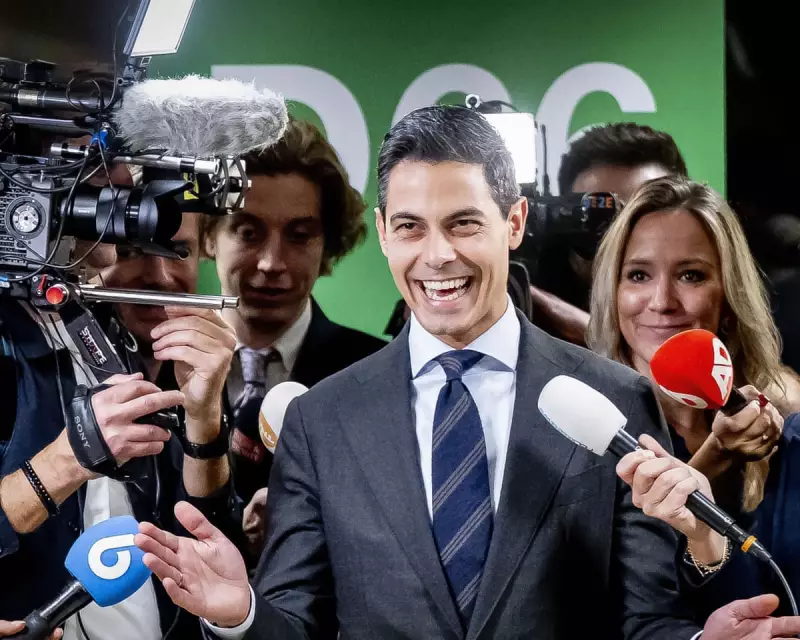
In a stunning political development that has sent shockwaves through Dutch politics, Democrat party leader Rob Jetten has announced his resignation following catastrophic election results that decimated his party's parliamentary presence.
A Political Freefall
The centrist D66 party, once a formidable force in Dutch politics, suffered a devastating blow in this week's parliamentary elections. Preliminary results indicate the party's representation will be slashed from 24 to a mere 10 seats—their worst performance in recent memory.
"The outcome is bitterly disappointing," Jetten told reporters during an emotional press conference. "The responsibility for this result lies with me alone. Therefore, I will step aside as party leader."
From Climate Champion to Political Casualty
Jetten's resignation marks a dramatic fall from grace for the politician who had positioned himself as a leading voice on climate and economic issues. Having served as climate and energy minister in the previous government, his ambitious green agenda initially resonated with voters.
However, political analysts suggest the party struggled to maintain its identity in a fragmented political landscape. "D66 found itself squeezed between left-wing parties and more centrist alternatives," noted one political commentator. "They failed to articulate a clear vision that distinguished them from their competitors."
The Coalition Conundrum
The election results have thrown Dutch coalition-building into uncertainty. With no single party commanding a majority, the dramatic reduction of D66's parliamentary presence complicates potential government formation.
Several smaller parties have gained ground, suggesting the Netherlands may face prolonged negotiations before a stable governing coalition can emerge.
What Comes Next for Dutch Politics?
Jetten will remain in parliament as a backbencher while the party begins the difficult process of selecting new leadership and rebuilding its political identity. The timing couldn't be more critical, with the country facing significant challenges including housing shortages, climate adaptation, and economic pressures.
The political landscape has fundamentally shifted, and all eyes will be on how the Netherlands navigates this new era of fragmented politics without one of its traditional centrist anchors.





